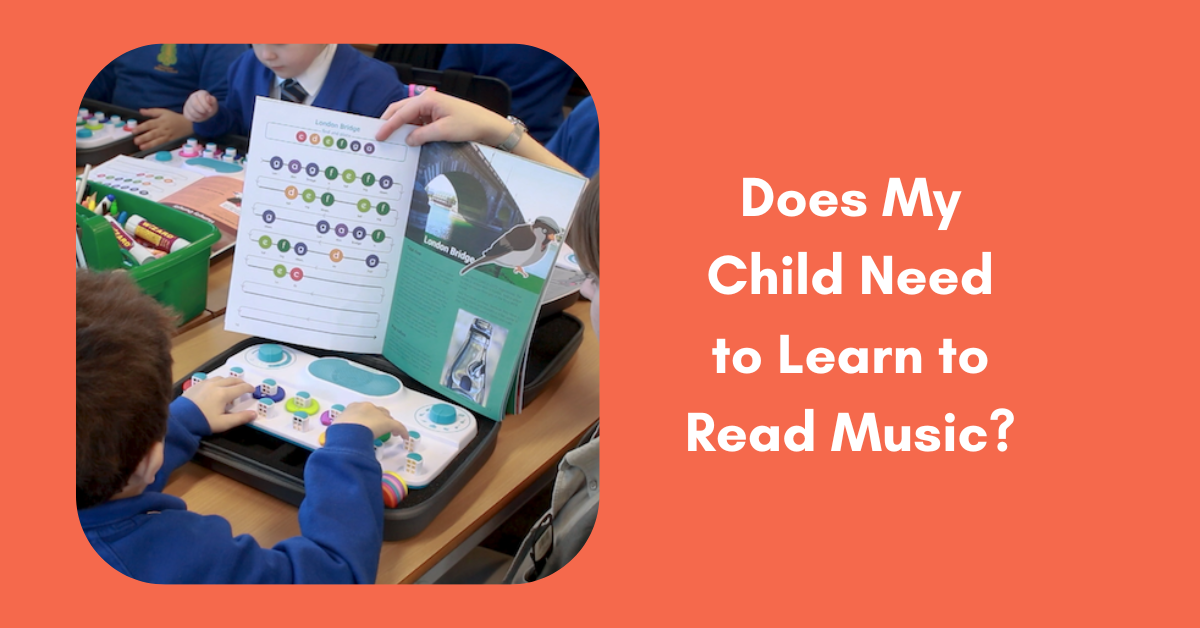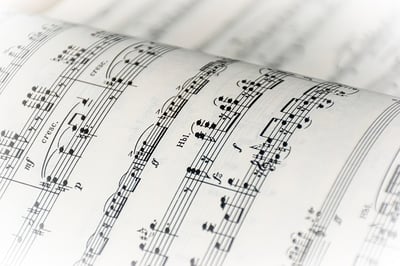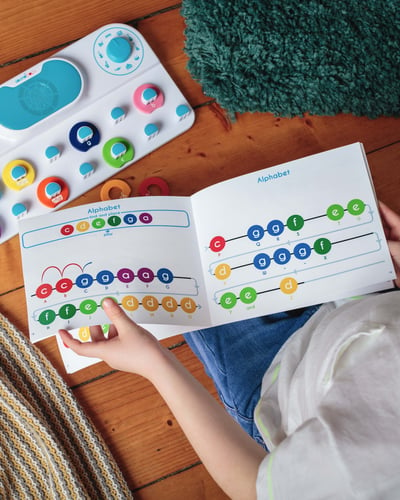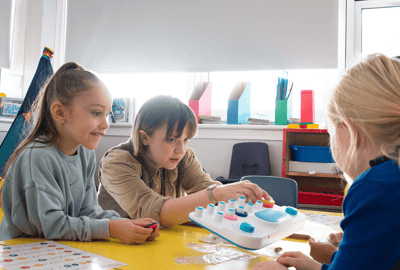Music Theory: Does My Child Need to Learn to Read Music?
June 19th, 2023
3 min read

Reading music was often seen as an absolute must for musicians starting out. After all, how else would you know what notes to play?
There are scores (get it?) of wonderful reasons to learn to read traditional music notation for your chosen instrument. But are there other options to turn your mini-musician into a maestro? And do you have to read music to be a true musician?
At Warwick Music, we know a thing or two about reading, playing, and even writing music. In fact, our business began as the leading publisher of sheet music for brass and woodwind instruments. And because our team have learned to play, taught others, and even watched our own children start their musical journies, we understand that there are a lot of questions.
So, let's take a look at how to read music for beginners and the best options for you and your little learner.

What is sheet music?
Musical notation often referred to as sheet music is often the first thing that we think of when we consider reading music. This method is favoured by classical musicians but can be used across a wide variety of genres. For musicians who have grown up with this system, reading music comes naturally. But to non-musicians or beginners, it can look complicated, to say the least!
Whether your child is learning to play the violin, the piano, the tuba, or the clarinet, it is likely that this will be their first experience of reading music.
What are the best ways for beginners to read sheet music?
There are a number of options. For older children who already have some degree of musical exposure, concepts such as pitch and rhythm will be easier to grasp. For young children, other tools may need to be used before advancing to sheet music. Here are a few pointers to help your child get started, whatever your own level of experience:
- Teach yourself, and your child, the key terms associated with reading music. Try using flashcards to help your child remember!
- Working with an experienced music tutor will give your child an assured start with music. By sitting in on their lessons, you may learn a thing or two yourself!
- There are a number of apps, such as Yousician, that introduce the basics of reading music. Check out our guide to music-learning AI apps!
- For younger musicians, devices like Soundbops give children a simple and fun introduction to musical notation, including books that can take kids from novices to notation superstars!

What are the benefits of reading music for beginners?
There are a number of big positives for introducing your child to sheet music and reading from a young age. They include:
- Musical independence for your child, giving them the freedom to play music from a variety of styles and genres
- Improved concentration and memory skills
- More opportunities to play music with bands and ensembles
- Introduces children to complex vocabulary and new musical ideas.
What are the alternatives to traditional sheet music?
There are lots of ways that children can play and read music in a non-traditional way.
One popular method for guitar, bass guitar, and ukulele players is tabs. Tabs work in a similar but simplified way to sheet music, with six lines to represent the strings of a guitar (this number can change for other instruments, such as four lines for a four-stringed bass guitar).
Rather than note heads, numbers represent the fret that must be pressed to play a note. There are some limitations to guitar tabs over sheet music: beats and rhythms are not clearly represented, so learning by ear (listening to the music) is vital.
There is even a unique way of playing brass instruments like the trumpet and trombone: BrassTabs.
BrassTabs takes the core concept of guitar tabs and brings them to brass instruments to give children the chance to play along with their favourite tunes. It is a fun way to learn the basics and can act as a launchpad for taking a more traditional music reading route.
Here is an example of BrassTabs being used on a pTrumpet, playing along to Girls Like You by Maroon 5:
Do all famous composers know how to read music?
No! Although reading (and writing) notation was often viewed as a must, there are a number of composers and notable musicians who do not read music. Although much of this shift is due to the explosion of contemporary musical styles - such as pop, rock, and rap - there are lots of modern composers and songwriters who rely on their ears and not their reading skills. They include:
- Hans Zimmer
- Paul McCartney
- Bob Dylan
- Elvis Presley
- Taylor Swift
- Danny Elfman
- Jimi Hendrix
- Aretha Franklin

Is reading music right for my child?
For many children, reading music will come naturally. Whether it is through private music lessons, playing music at school, or learning the building blocks of reading music from a young age, sheet music will form a natural part of their progression.
For others, the instrument that they play will have an impact on whether traditional sheet music is needed. Some instruments, such as percussion, rely more on practical learning as opposed to the visual methods of reading music.
Other children may enjoy expressing themselves without reading music...after all, that's how many current artists write and perform their tunes!
Giving your child the chance to experience reading music in some form will allow them to find their own path. While some may be reading concertos faster than you can read an impeccably written blog (ahem), others may find that the joy of music can be shared in other ways.
- For beginner brass players, BrassTabs gets you playing trumpet or trombone gets you playing pronto. Find out more on the BrassTabs site!
- If you want to discover more about how Soundbops can give young children the chance to learn how to read music, check out the Soundbops website!
- Fancy seeing how Soundbops can get your child started? Download our free Soundbops sample resource!
Adam is the Content Manager at pBone Music. This should mean that he’s the ideal person to write about himself, but he finds boasting in the third person a little awkward. He honed his word wizardry with a degree in English Language and Literature at the University of Leeds. He has since written copy for clients and businesses across the land, from awards to something beginning with “z”. He also spent a number of years as a musician. He has written pop songs and even jingles for kids, performed more first dances at weddings than you could shake a pBuzz at, and once played a gig for a pie company at The Etihad Stadium in Manchester. When he’s not reminiscing about those good old days, you might find Adam enjoying the football (although as an Everton fan, that can be difficult). He also loves spending time with his partner, Jen, and his family and friends, and sincerely hopes they feel the same way.